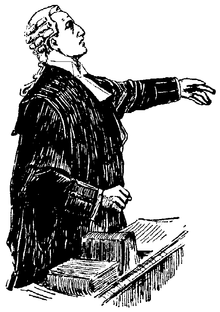If you think that
this is ridiculous imagine a nightmare scenario whereby the Government is able to give the HSE and other regulators the power (by Henry VIII order and with little parliamentary scrutiny) to bypass the criminal courts (with their inconvenient burdens of proof and rules of evidence and independent juries and JPs) and hand out civil sanctions (a bit like expensive parking tickets) for criminal offences which the recipient would have a right to appeal to an administrative tribunal (where the civil burden and standard of proof would be on the wrongdoer to prove that he had done no wrong). Oh sorry that's not a nightmare - but is actually on the statute books -
see Part 3 of this scary Act of Parliament.

This is an interesting and rather complicated development which was based on the Hampton review and the MacRory Report.
ReplyDeletehttp://www.berr.gov.uk/whatwedo/bre/inspection-enforcement/assessing-regulatory-system/page44042.html
http://www.berr.gov.uk/whatwedo/bre/reviewing-regulation/compliance-businesses/page44102.html
Macrory made this recommendation:
Recommendation 3:
I recommend that in order to increase the effectiveness of criminal courts for regulatory offences, the following actions should be implemented:
The Government should request the Sentencing Guidelines Council to prepare general sentencing guidelines for cases of regulatory non-compliance;
Prosecutors should always make clear to the court any financial benefits resulting from non-compliance as well as the policy significance of the relevant regulatory requirement;
Prosecutions in particular regulatory fields be heard in designated Magistrates’ Courts within jurisdictional areas, where appropriate; and
Regulators provide specialist training for prosecutors and discuss with the Judicial Studies Board (JSB) contributing to the training of the judiciary and justices’ clerks.
As far as I can see, none of that has been actioned.
Whilst making those recommendations to improve the handling of cases in the criminal court, Macrory suggested a range of sanctions which "regulators" (Schedule 5) could impose in relation to offences (listed in Schedule 6). The effect of this has been to remove a lot of this work from the criminal courts.